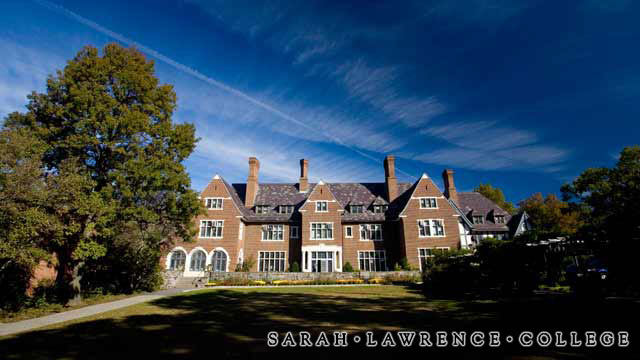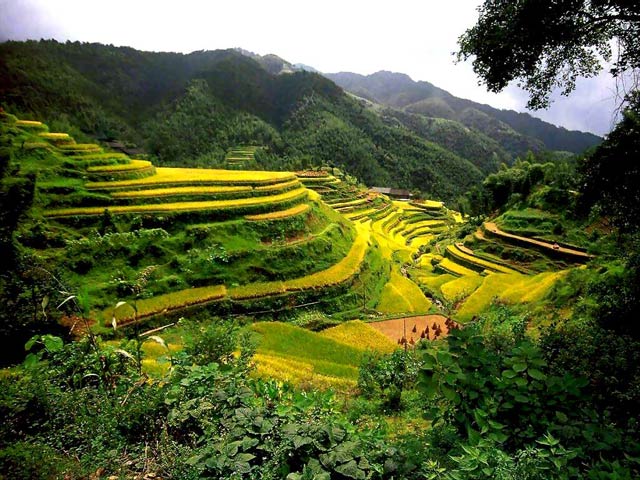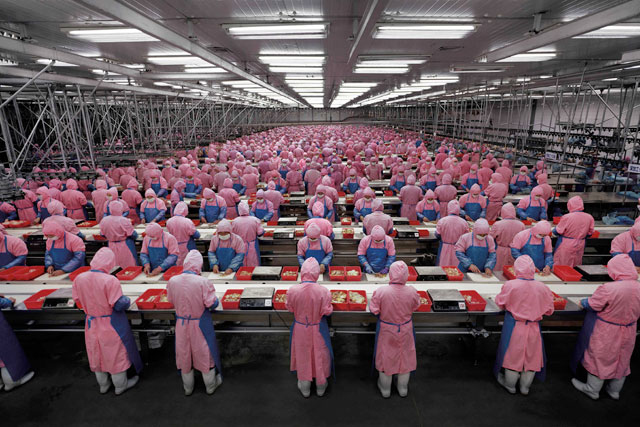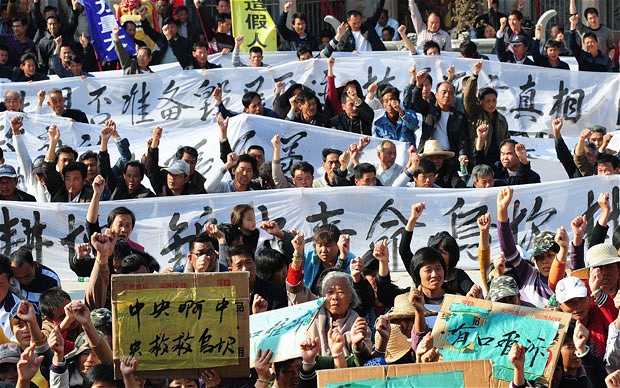
.
Food, Agriculture, Environment, & Development (FAED)
Year-Long Lecture, 2012-13
Where does the food we eat come from? Why do some people have enough food to eat and others do not? Are there too many people for the world to feed? Who controls the world's food? What are the environmental impacts of our food production systems? How do answers to these questions differ by place or the person asking the question? How have they changed over time? This course will explore the  following fundamental issue: the relationship between development and the environment focusing in particular on agriculture and the production and consumption of food.
following fundamental issue: the relationship between development and the environment focusing in particular on agriculture and the production and consumption of food.
The questions above often hinge on the contentious debate concerning population, natural resources, and the environment. Thus we will begin by critically assessing the fundamental ideological positions and philosophical paradigms of "modernization", as well as critical counterpoints, that lie at the heart of this debate. Within this context of competing sets of philosophical assumptions concerning the population-resource debate, we will investigate the concept of 'poverty' and the making of the "Third World", access to food, hunger, grain production and food aid, agricultural productivity (The Green and Gene Revolutions), the role of transnational corporations (TNCs), the international division of labor, migration, globalization and global commodity chains, and the different strategies adopted by nation states to 'develop' natural resources and agricultural production.
Through an historical investigation of environmental change and the biogeography of plant domestication and dispersal, we will look at the creation of indigenous, subsistence, peasant, plantation, collective, and commercial forms of agriculture. We will analyze the physical environment and ecology that help shape but rarely determine the organization of resource use and agriculture. Rather, through the dialectical rise of various political-economic systems such as feudalism, slavery, mercantilism, colonialism, capitalism, and socialism, we will study how humans have transformed the world's environments.
We will follow with studies of specific issues: technological change in food production; commercialization and industrialization of agriculture and the decline of the family farm; food and public health, culture, and family; the role of markets and transnational corporations in transforming the environment; and the global environmental changes stemming from modern agriculture, dams, deforestation, grassland destruction, desertification and biodiversity loss. Case studies of particular regions and issues will be drawn from Africa, Latin America, Asia, Europe, and the United States.
The final part of the course examines the restructuring of the global economy and its relation to emergent international laws and institutions regulating trade, the environment, agriculture, resource extraction treaties, the changing role of the state, and competing conceptualizations of territoriality and control. We will end with discussions of emergent local, regional, and transnational coalitions for food self-reliance, alternative and community supported agriculture, community based resource management systems, sustainable development, and grassroots movements for social and environmental justice.
Films, multimedia materials, and distinguished guest lectures will be interspersed throughout the course. One farm fieldtrip is possible if funding permits. The seminar participants may also take a leading role in a campus-wide event on 'food and agriculture' tentatively planned for the spring. Please mark your calendars when the dates are announced as attendance for all of the above is required. Attendance and participation is also required at special guest lectures and film viewings in the Geography Lecture Series approximately twice per month in the evening from 5-7pm. The Web board is an important part of the course. Regular postings of assignments will be made here, as well as follow-up commentaries and group discussion. There will be in-class essays, a midterm quiz, and a final exam each semester. Group conferences will focus on in depth analysis of certain course topics, and will include debates and small group discussions. You will be required to prepare a poster project each semester on a topic of your choice, related to the course, which will be presented at the end of each semester in group conference, as well as in a potential public session.
.
Policy in Theory and Practice: Environment and Development
Year-Long Seminar, 2012-13
This yearlong seminar is about environmental policy. As such it asks a number of questions. How and why does policy get made? Which information is heard and used and which is not? What role does science play in environmental policy making? How are certain styles of development and development paradigms deployed? How is the policy process politicized? What happens to it after it is adopted as "policy"? We start with a historical review of development paradigms and how these shape environment-development discourses, revealing competing approaches to key contemporary issues such as climate change, biodiversity conservation, population, food security, land grabs, poverty alleviation, energy, community-based natural resource management, environmental violence, and environmental justice. While largely focusing on the Global South, with reference to Asia, Latin America, and Africa, and policies driven by international institutions such as the World Bank as well as dominant nation states, the seminar will also draw on examples from the Global North. We then move to epistemology and theory building in the social and environmental sciences that influence environmental policy, examining diverse approaches from social theory to political ecology to policy studies to environmental economics to ecological modernization and ecology. We will discuss power and the construction of environmental knowledge. This will be followed by examination of environmental policy in formation and implementation at international (e.g. international environmental agreements), national (e.g. ministries and state agencies), and local levels (e.g. environmentally-themed programs and projects). We will then explore varied approaches to policy analysis, i.e. the methodological means to assess and improve policies in practice. Finally, we will examine the contested potential for policy improvement and associated movements for increased participation and democratization of policy processes. There will be a number of sessions involving group presentations, debate, and role-play on specific environment and development issues.
Conference work will be closely integrated with the themes of the course, with a two-stage substantive research project focusing on an analysis and critique of an instance of policy of the student's choice (usually grounded in texts but also involving fieldwork if feasible). The intent will be to provide inputs for chosen policy actors-from social movements to NGOs to formal policy makers. As such, project presentations will incorporate a range of formats, from traditional papers to multimedia visual productions. Where possible you will be encouraged to do primary research during fall study days, winter and spring breaks.
[This is an advanced year-long seminar and prior experience in the social sciences is highly recommended.]
.
Introduction to Development Studies: The Political Ecology of Development (IDS)
In this yearlong seminar, we will begin by examining competing paradigms and approaches to understanding "development" and the "third world." We will set the stage by answering the question: What did the world look like 500 years ago? The purpose of this part of the course is to acquaint us with and to analyze the historical origins and evolution of a world political-economy of which the "third world" is an intrinsic component. We will thus study the transition from feudalism to capitalism, the rise of merchant and finance capital, and the colonization of the world by European powers. We will analyze case studies of colonial "development" to understand the evolving meaning  of this term. These case studies will help us assess the varied legacies of colonialism apparent in the emergence of new nations through the fitful and uneven process of decolonization that followed. The next part of the course will look at the United Nations and the role some of its associated institutions have played in the post-World War II global political-economy, one marked by persistent and intensifying socioeconomic inequalities as well as frequent outbreaks of political violence across the globe. By examining the development institutions that have emerged and evolved since 1945, we will attempt to unravel the paradoxes of development in different eras.
of this term. These case studies will help us assess the varied legacies of colonialism apparent in the emergence of new nations through the fitful and uneven process of decolonization that followed. The next part of the course will look at the United Nations and the role some of its associated institutions have played in the post-World War II global political-economy, one marked by persistent and intensifying socioeconomic inequalities as well as frequent outbreaks of political violence across the globe. By examining the development institutions that have emerged and evolved since 1945, we will attempt to unravel the paradoxes of development in different eras.
We will deconstruct the measures of development through a thematic exploration of population, resource use, poverty, access to food, the environment, agricultural productivity, and different development strategies adopted by third-world nation-states. We will then examine globalization and its relation to emergent international institutions, such as the IMF, World Bank, and WTO, and their policies. Throughout the course, our investigations of international institutions, transnational corporations, the role of the state, and civil society will provide the backdrop for the final focus of the class—the emergence of regional coalitions for self-reliance, environmental and social justice, and sustainable development. Our analysis of development in practice will draw upon case studies primarily from Africa, but also Asia, Latin America and the Caribbean, and the United States. Conference work will be closely integrated with the themes of the course, with a two-stage substantive research project beginning in the fall semester and completed in the spring. Project presentations will incorporate a range of formats, from traditional papers to multimedia visual productions. Where possible, you will be encouraged to do primary research over the winter and spring breaks.
.
The Geography of Contemp. China and Its Place in a Globalizing World Economy
from revolution to tian'anmen, from socialism to market economy, from tibet to hong kong
 In this one-semester seminar we will explore China's evolving place in greater Asia and the Pacific Rim through regional political-economic integration efforts and globalization processes. This will allow occasional brief introductions of neighboring countries.
In this one-semester seminar we will explore China's evolving place in greater Asia and the Pacific Rim through regional political-economic integration efforts and globalization processes. This will allow occasional brief introductions of neighboring countries.
In China, the primary focus of the course, we will explore the impact of the post-1978 reforms. From agrarian change and rural development, to urban and industrial transformations, to Hong Kong's return and China's emergence as a global superpower, we will analyze the complex intertwining of the environmental, political-economic, and socio-cultural aspects of these processes as we interpret the geography of contemporary China. We will begin with an overview of contemporary China, discussing the unique aspects of China's modern history, contemplating the changes and continuities that exist from one era to the next. Using a variety of theoretical perspectives, we will analyze a series of debates—environment/development conflicts, the moral economy debate, the role of the state, globalization and regional transformation issues, and the roots of the Tian'anmen student and social movement.
Theoretical debates will revolve around the concepts and constructs of sustainable development, welfare of the peasantry and vulnerability, changing intra-household relations, modernization and socialist transition. We will follow this with analyses of popular culture, recent issues of Hong Kong's transition, and border region/minority conflicts.
China borders many of the most volatile places in the contemporary world. Thus we will conclude with a discussion of security issues and geopolitics and potential scenarios for China's future. Other trends in China's evolving path will also be examined as time permits. Throughout the seminar there will be openness to comparisons with other areas of the world within the context of the broader theoretical and thematic questions mentioned above. Weekly films, mass media, books, and selected readings will be used to inform debate and discussion. A structured conference project will integrate closely with one of the diverse topics of the seminar.
